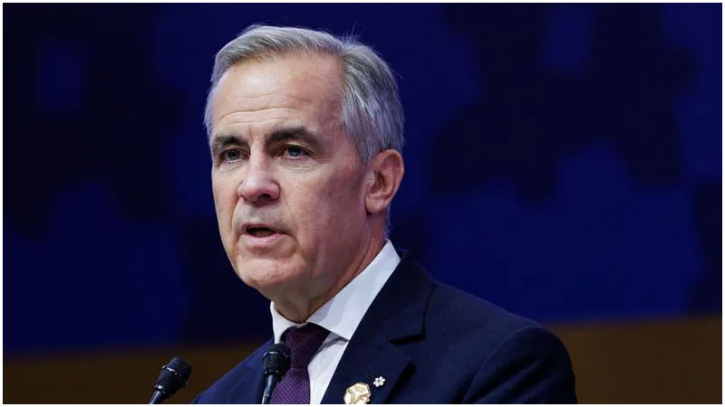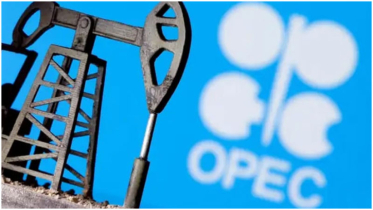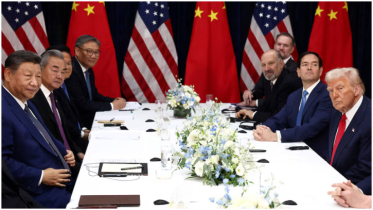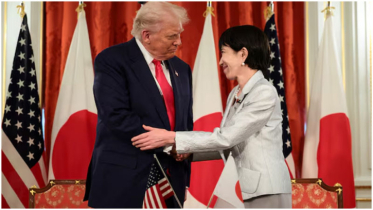Canadian PM Carney apologises to Trump over anti-tariff ad

Canadian Prime Minister Mark Carney has apologised to U.S. President Donald Trump following the airing of an anti-tariff advertisement that used a quote from former U.S. President Ronald Reagan.
Speaking at the Asia-Pacific Economic Cooperation (APEC) Summit in South Korea on Saturday, Carney confirmed he had personally expressed regret to Trump. “I did apologise to the president,” he told reporters, describing the incident as “not something I would have done.”
The controversy began last week when Trump suspended trade talks with Canada and announced plans to impose an additional 10% tariff on Canadian imports in response to the commercial.
The advertisement, funded by Ontario’s provincial government, featured audio from Reagan’s 1987 national radio address, in which he warned that tariffs harm the American economy. “Such trade barriers hurt every American worker and consumer,” Reagan said in the clip.
Carney said Trump was “offended” by the ad, which aired during the first two games of the World Series between the Toronto Blue Jays and the Los Angeles Dodgers. Ontario Premier Doug Ford, whose government sponsored the ad, claimed it had reached “one billion views” globally and attracted attention from the UK and India.
Trump confirmed Carney’s apology on Friday, saying the two leaders shared a “very good” relationship but maintained that “what he did was wrong.”
Carney also revealed that Ford had shown him the advertisement before its release and that he had advised against airing it.
The ad reportedly led to a heated exchange between U.S. envoy Pete Hoekstra and Ontario’s trade representative David Paterson. Ford said Hoekstra made remarks that were “absolutely unacceptable” and should apologise to Paterson.
Since taking office, President Trump has introduced a series of tariffs on countries including Canada. The U.S. currently imposes a 35% tariff on Canadian goods—though many products are exempt under a free trade deal—with higher rates of 50% on steel and aluminium and 25% on automobiles.
Trump also accused Canada this week of attempting to influence an upcoming U.S. Supreme Court case that will determine the legality of his broad tariffs on Canada, Mexico, China, and other nations.
.png)




